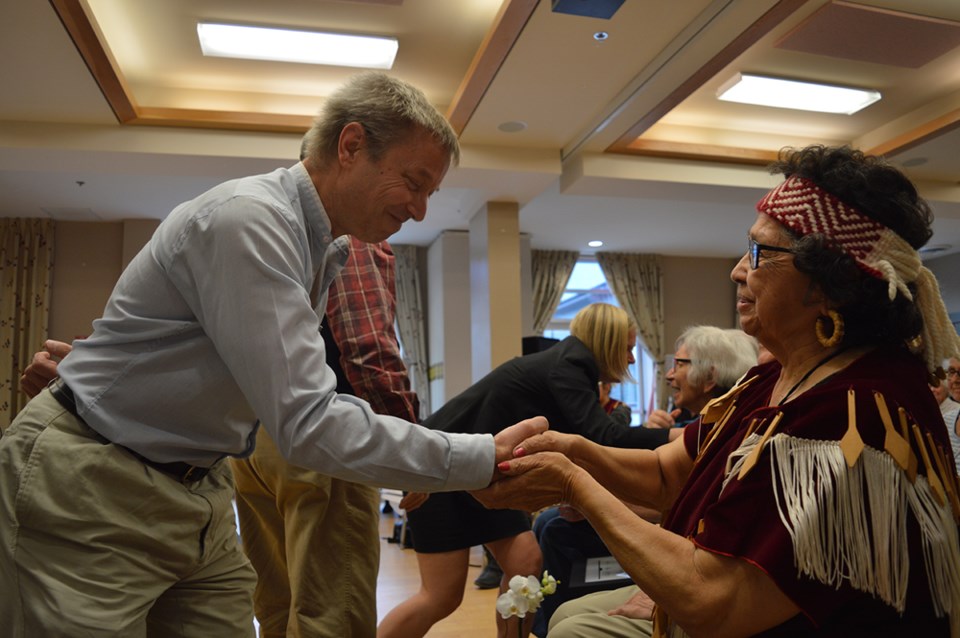Squamish’s municipal council has endorsed the United Nations Declaration on the Rights of Indigenous Peoples.
During their last day of meetings on Oct. 23, outgoing politicians unanimously adopted the UN declaration as way of framing reconciliation in the District of Squamish.
They also urged the next council to examine ways in which local government can move truth and reconciliation with Indigenous peoples further along. Council referred this discussion to a strategy session of the next sitting council.
“I thought it good to talk about some of these calls to action, and maybe put them in the forefront of the next council’s thinking and agenda,” said Mayor Patricia Heintzman.
It was mentioned by several councillors that the UN declaration appeared to mirror human rights, which should be a basic standard.
“It’s literally just human rights,” said Heintzman. “It’s almost unfortunate something would have to be written that specifies that Indigenous peoples have the same rights as everybody else. But that‘s fundamentally, I guess, what the UN determined that was necessary.”
“Any fair-minded person would find this just common sense,” said Coun. Doug Race, who provided perhaps the most extensive analysis of the declaration.
He noted there were grey areas in the document.
His first point was that in the language of the UN declaration, he said, there was talk of having the state consult with Aboriginal peoples.
Translated into Canadian terms, this would probably mean the Crown, which refers to the federal and provincial governments, he said. “It’s debatable whether legally it extends to local governments and municipalities our obligation to consult, etcetera, or whether we have one at all,” said Race.
“Nevertheless as a practice — even if we don’t — I think it’s generally something we should pursue.”
Race’s second point involved obtaining consent from First Nations.
He noted the Supreme Court of Canada has made a ruling that appears to contradict Article 19 of the UN declaration, which states:
“States shall consult and co-operate in good faith with the Indigenous peoples...in order to obtain their free, prior and informed consent before adopting and implementing legislative or administrative measures that may affect them.”
He said it’s unclear how far the government must go to obtain Indigenous peoples’ consent.
Race said that under his interpretation, the government has an obligation to consult in good faith. So long as the good faith is there, the Crown has fulfilled its duty, even if consent doesn’t come.
“Certainly it’s a grey area, but I would not want to say I do not want to support this because of that,” he said.
District staff and council also reflected on what they considered to be successes and failures with Aboriginal relations this past term.
Chief administrative officer Linda Glenday noted that a number of District initiatives — such as cultural sensitivity training for municipal staff — have been making steps towards improving relations with the Squamish Nation.
Coun. Susan Chapelle, however, said there was also much work to be done.
“All the ceremonial stuff is all nice, but when I look at our land use and the amount of new reserve land that will be in our district and how to get services to that land...it’s going to be a monumental task,” she said.



